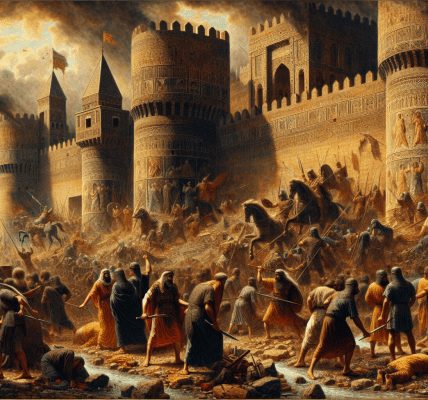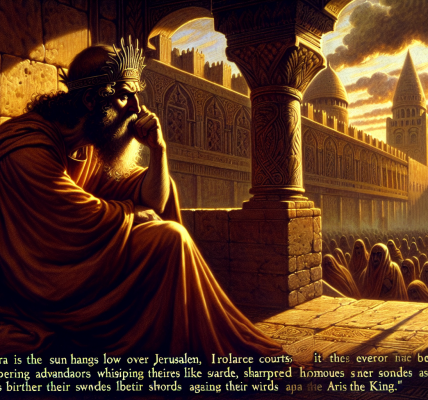**The Thorn and the Glory: A Tale of Paul’s Suffering and Boasting**
The flickering oil lamps cast long shadows across the parchment as Paul dipped his quill into the inkwell. The air in the small room was thick with the scent of papyrus and the distant murmur of Corinthian nightlife. His heart burned with a mixture of righteous indignation and deep sorrow as he penned his letter to the church he loved so dearly.
*”I wish you would bear with me in a little foolishness. Do bear with me!”* (2 Corinthians 11:1).
The words flowed from his soul, not in arrogance, but in the anguish of a spiritual father watching his children stray. False apostles had slithered into the Corinthian church like serpents, their smooth words dripping with flattery. They boasted of their eloquence, their visions, their pedigrees—twisting the truth and leading believers astray.
Paul’s hand trembled slightly as he continued, his mind flashing back to the trials he had endured for the sake of Christ.
*”Are they servants of Christ? I am a better one—I am talking like a madman—with far greater labors, far more imprisonments, with countless beatings, and often near death.”* (2 Corinthians 11:23).
### **The Labors of Love**
He remembered the stinging lash of the whip in Philippi, the cold bite of iron shackles around his wrists. The dungeon walls had been slick with dampness, the air thick with the stench of human suffering. Yet even there, at midnight, he and Silas had lifted their voices in hymns, shaking the very foundations of the prison.
He thought of the long, treacherous roads—beaten by bandits, weary from sleepless nights, hungry and thirsty, exposed to the biting cold. Once, in Lystra, they had stoned him and left him for dead outside the city gates. But God had raised him up, and he had walked back into the city, bloodied but unbroken.
### **The Perils of the Sea**
His fingers traced the edge of the parchment as he recalled the storms at sea—the howling winds, the waves crashing over the deck, the desperate prayers of sailors as the ship groaned under the fury of the tempest. Three times he had been shipwrecked, once spending a night and a day adrift in the open sea, clinging to broken planks, the saltwater stinging his wounds.
### **The Betrayals and the Burden**
But worse than the physical suffering were the betrayals. False brothers, wolves in sheep’s clothing, had infiltrated the churches he planted, undermining his labor. They whispered behind his back, questioning his authority, mocking his appearance, calling his speech unimpressive.
Yet here he was, forced to boast—not in his own strength, but in his weakness, for it was in weakness that Christ’s power was made perfect.
*”If I must boast, I will boast of the things that show my weakness.”* (2 Corinthians 11:30).
### **The Thorn and the Glory**
Then there was the thorn—the relentless, humbling affliction that kept him from exalting himself. Three times he had begged the Lord to remove it, but the answer had been clear: *”My grace is sufficient for you, for my power is made perfect in weakness.”* (2 Corinthians 12:9).
And so, with a sigh, Paul set down his quill. His boasting was not for his own glory, but to expose the deceit of the false apostles and to remind the Corinthians of the true marks of an apostle—not in polished speeches, but in suffering, in sacrifice, in the relentless love of Christ.
*”For I am not ashamed of the gospel, for it is the power of God for salvation to everyone who believes.”* (Romans 1:16).
And with that, he sealed the letter, praying that the church would see past the folly of human boasting and cling instead to the cross—where true strength was found in surrender, and true glory in sacrifice.



